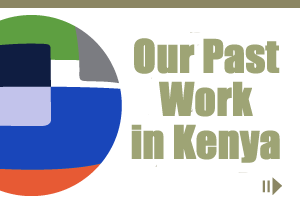Experts and journalists met at Internews in Kenya to interrogate and interpret a new study which claims voluntary medical male circumcision (VMMC) does not reduce the likelihood of HIV transmission.
A ‘doctors opposing circumcision’ team led by Gregory J. Boyle and George Hill concluded that male circumcision is not associated with reduced sexual transmission of HIV.
However, African scientists have responded to this attempt to refute VMMC with numerous sets of evidence showing that removing the foreskin was one the best-proved interventions in medicine.
“I think the article is just part of the journey we are making as a world as we continue debating male circumcision from our own individual and societal standpoints but the science is very clear that circumcision is protective,” said the Head of HIV Prevention at the National AIDS & STI Control Programme Dr. Peter Cherutich, in response to the paper titled: Sub-Saharan randomized clinical trials into male circumcision and HIV transmission: methodological, ethical and legal concerns.”
Dr Cherutich said that many observational studies have proven that circumcised men are less prone to getting HIV, other sexually transmitted diseases and even cancer.
This view was supported by other panelists at the roundtable, including NASCOP VMMC Manager Dr. Ochieng’ Athanasius. Circumcision removes Langerhans cells from foreskin, he explained. Langerhans are the likely initial targets for HIV following sexual exposure to the virus.
Journalists raised many questions about the study, which also discussed ways that journalists can use to interpret scientific studies to avoid misreporting.
One of the ways is confirming the science with the experts.
“You can always call someone like Dr. Cheroitich,” said Ida Jooste, the Country Director Internews in Kenya, “That is why they are here, to help you to interpret the science.”
Journalists should also query the credibility of studies. “The conflict of interest in this paper was not stated,” said Global Advocacy for HIV prevention ( AVAC)Program Advisor Angelo Kaggwa. “The authors of a scientific paper must state if they have an interest and in this case one of the authors received a salary from the ‘Medical doctors opposing circumcision’ organization.”
Kaggwa said journalists had a vital role to play to ensure that false information did not take root in the communities which have been won over to circumcise. He and Nation Media science editor Gatonye Gathura appealed to journalists to realize that responsible journalism was a long-term commitment, far more important than the short-lived sensation of publishing a story for the sake of stirring public debate. Gatonye had earlier decided not to report on the new study, when he realized the methodology seemed flawed. He told journalists that when one gets a sense that assertions don’t match common knowledge about biology and HIV transmission, it was best to leave the story alone.




